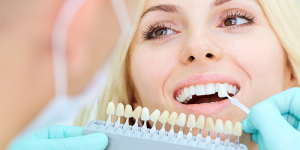 Nobody wants to go through life without a full, functional set of teeth. If you have missing or damaged teeth, dental implants can be used to restore your smile and function by providing you with replacement teeth that look and behave just like your real ones.
Nobody wants to go through life without a full, functional set of teeth. If you have missing or damaged teeth, dental implants can be used to restore your smile and function by providing you with replacement teeth that look and behave just like your real ones.
For most patients, the implants themselves will last a lifetime. However, replacement teeth, such as crowns and bridges may require replacement. Here are some basic maintenance steps that you can take to ensure the longevity of your dental implants.
How Long Should Dental Implants Last?
There has been much clinical research on the longevity of dental implants, and the general consensus is that between 95 and 98 percent of all implants last for 50 years or more.
While it is possible for dental implants to fail, this is something that will be evident to your oral surgeon, who can replace the failing implants with new ones. Again, most implants succeed the first time, but in the rare instance of implants failing, a second procedure usually corrects the problem.
Once the dental implant is fused with the underlying jawbone, your regular dentist will place a crown, bridge, or some other form of dental prosthesis. These replacement teeth may last for a decade or more but usually do not last a lifetime. While you can extend the lifespan of your dental prostheses via good brushing and flossing, you will need to have them replaced eventually.
How to Maintain Your Dental Implants
For most patients, maintaining dental implants is a simple matter of sound oral hygiene. This means brushing, flossing, and staying current with your dental check-ups.
Some more specific tips for maintaining your dental implants include:
1) Schedule routine cleanings.
Make sure you see your dental hygienist every six months, just as you would for your natural teeth. Your hygienist will help keep plaque and tartar from accumulating along the gumline, thereby minimizing your risk for periodontal disease. Your hygienist will also clean and polish your prostheses and make sure the abutments (that is, the pieces that connect your implants to the replacement teeth) are in good shape.
2) Brush your teeth regularly.
Again, you mostly just want to treat your replacement teeth the way you would treat your natural ones. Brush at least twice daily, preferably with a soft-bristle toothbrush. Low-abrasive kinds of toothpaste with tartar control tend to work best.
3) Floss regularly.
We would also recommend flossing regularly. For patients who just have one or two teeth replaced, it is usually best to just floss like normal. For patients who have had a number of teeth replaced or who have had All-on-4 treatment, it may be better to use a floss threader or a water flosser.
4) Use mouthwash.
Antimicrobial mouthwash can help prevent the spread of bacteria in your mouth. Consistent use can lead to improved oral health in general.
5) Pay attention to your teeth and gums.
Be observant about your teeth and gums, and schedule a dental appointment at the first sign of anything abnormal. Be especially mindful of issues with your gums or difficulty biting and chewing. By addressing issues early, you can usually avoid more serious problems down the road.
6) Be careful what you eat.
Generally, dental implants allow you to continue enjoying all of your favorite foods. This is a big part of their popularity. There are just a few foods that can cause damage to your implants. Some foods to avoid:
- Hard foods, including popcorn and raw vegetables
- Sticky foods, such as taffy or gummy candies
- Ice (having it in your drink is fine but avoid chewing on it)
7) Avoid smoking.
Smoking is bad for your oral health in general and has been linked with premature dental implant failure. It is especially important to avoid smoking during your dental implant recovery process.







